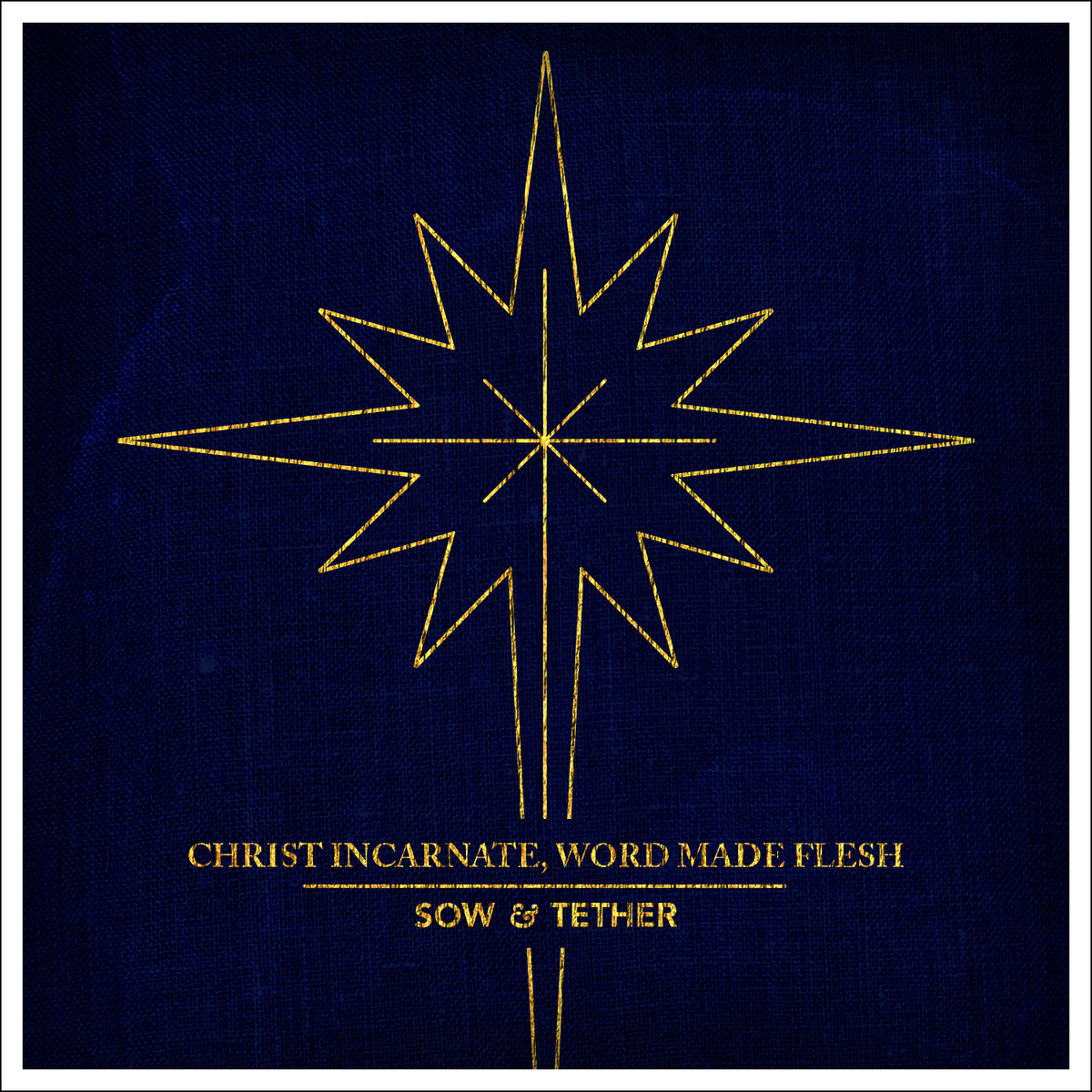The Word Made Personal: Incarnate Word and Human Identity explores the profound impact of the Incarnation on human understanding of self, relationships, and suffering. This pivotal theological concept, central to Christianity and impacting other faiths, reframes human nature, dignity, and potential. From historical interpretations to contemporary relevance, this examination delves into the transformative power of God becoming human.
We will analyze how the Incarnation reshaped ethical frameworks, interpersonal dynamics, and societal structures. Examining both pre- and post-Incarnation perspectives, we will consider the implications for freedom, responsibility, and the very definition of humanity. The discussion will also address the role of suffering and redemption, offering insights into modern interpretations and their relevance to 21st-century challenges.
The Concept of Incarnation: The Word Made Personal: Incarnate Word And Human Identity
The Incarnation, the belief that God became human in the person of Jesus Christ, is a central tenet of Christian theology, profoundly impacting understandings of God, humanity, and the relationship between them. This concept has been interpreted and reinterpreted throughout history, shaping various theological and philosophical perspectives. Different religious traditions also offer unique interpretations of the idea of divinity taking on human form, although the Christian understanding is arguably the most widely known and influential.
Obtain recommendations related to “From the Minors to the Majors: The Rise of Jake Burger” that can assist you today.
Theological Significance of the Incarnation Across Religious Traditions
While the Christian understanding of the Incarnation is unique in its emphasis on Jesus as both fully God and fully human, the concept of a divine being interacting with humanity in a physical form appears in other religions. Hinduism, for instance, features avatars, divine manifestations taking human form, such as Krishna or Rama. In Buddhism, the Bodhisattva ideal emphasizes compassion and enlightenment achieved through engagement with the world, mirroring a kind of self-emptying that parallels aspects of the Incarnation.
However, the specific nature of the divine intervention and its implications differ significantly across these traditions.
Historical Interpretations of the Incarnation in Christianity
Christian understanding of the Incarnation has evolved throughout history. Early Church Fathers like Irenaeus emphasized the restoration of humanity through Christ’s union of divine and human natures. Later, medieval theologians like Anselm explored the atonement theory, emphasizing Christ’s sacrifice as necessary for reconciling humanity with God. The Reformation period saw further nuances, with reformers like Luther emphasizing Christ’s substitutionary atonement.
Modern interpretations continue to grapple with the implications of the Incarnation, exploring its relevance to contemporary social and ethical issues.
Philosophical Approaches to Understanding the Incarnation
Philosophically, the Incarnation presents a complex challenge. The problem of how two distinct natures, divine and human, can coexist in one person has been debated extensively. Nestorianism, for example, posited two separate persons in Christ, while Monophysitism asserted only one nature. The Chalcedonian Definition (451 AD) attempted to reconcile these views by affirming Christ’s two natures, united in one person, without confusion or separation.
Contemporary philosophical approaches draw upon various schools of thought, including process theology and liberation theology, to address the implications of the Incarnation.
Impact of the Incarnation on Human Life
The Incarnation’s effects are far-reaching, impacting various aspects of human existence. The following table summarizes these changes:
| Aspect | Pre-Incarnation | Post-Incarnation | Impact |
|---|---|---|---|
| Spiritual | Separation from God, alienation | Possibility of reconciliation, relationship with God | Bridging the gap between the divine and the human |
| Social | Division, conflict, inequality | Potential for unity, love, justice | Inspiring social transformation based on compassion and equality |
| Ethical | Varying moral codes, subjective ethics | Objective moral standard based on God’s love | Providing a foundation for ethical decision-making based on love and compassion |
Human Identity Before and After the Incarnation
The Incarnation fundamentally reshapes the understanding of human nature and dignity. Before the Incarnation, humanity was often perceived as flawed and separated from the divine. The Incarnation, however, reveals a God who identifies with humanity, sharing in its joys and sorrows, thereby elevating human dignity and potential.
The Incarnation’s Impact on Human Nature and Dignity
The Incarnation affirms the inherent worth of every human being, regardless of their flaws or circumstances. By becoming human, God demonstrates an unconditional love and acceptance that transcends human limitations. This understanding underpins concepts of human rights and dignity, providing a powerful moral and theological basis for social justice initiatives.
Implications of the Incarnation for Human Freedom and Responsibility
The Incarnation doesn’t diminish human freedom but rather affirms it within the context of a loving relationship with God. Humans remain free to choose, but this freedom is now understood within the framework of God’s grace and the example of Christ’s self-giving love. This implies a heightened sense of responsibility, as humans are called to reflect God’s love in their actions and interactions with others.
Human Potential: Before and After the Incarnation
Before the Incarnation, human potential was often limited by a sense of separation from the divine and an awareness of human limitations. The Incarnation, however, reveals the boundless potential inherent in humanity, as reflected in Christ’s life, death, and resurrection. This inspires hope and encourages striving for personal growth and spiritual transformation.
The Incarnation’s Influence on Ethical Decision-Making
The Incarnation provides a powerful ethical framework based on love, compassion, and self-sacrifice. Ethical decision-making is no longer solely based on self-interest or societal norms but rather on the example of Christ, who embodied selfless love and concern for others. This principle has influenced the development of moral codes and ethical systems throughout history.
The Word Made Flesh: Implications for Relationships
The Incarnation profoundly transforms our understanding of God’s relationship with humanity and its implications for interpersonal and societal relationships. It moves beyond a distant, impersonal deity to a God who is intimately involved in human life, fostering a sense of closeness and intimacy.
The Incarnation and God’s Relationship with Humanity
The Incarnation reveals God not as a remote, judgmental figure but as a loving, compassionate Father who deeply cares for his creation. This intimate relationship is exemplified in Jesus’ life, ministry, and sacrifice, offering a model for how humans should relate to God and to one another.
Impact of the Incarnation on Human Relationships
The Incarnation’s impact on human relationships is transformative. It encourages empathy, forgiveness, and reconciliation, replacing conflict and division with unity and love. This principle is reflected in the teachings of Jesus, which emphasize love for one’s neighbor and the importance of building relationships based on mutual respect and understanding.
Hypothetical Scenario: Applying the Incarnation’s Message to Conflict Resolution
Imagine a community divided by ethnic tensions. Applying the Incarnation’s message, leaders could initiate dialogue based on empathy and understanding, acknowledging shared humanity and seeking common ground. This process would involve active listening, forgiveness, and a commitment to building bridges rather than walls. The goal would be to foster reconciliation and create a more just and harmonious community, reflecting Christ’s self-giving love.
Biblical Passages on the Incarnation and Human Relationships, The Word Made Personal: Incarnate Word and Human Identity
Several biblical passages highlight the Incarnation’s implications for human relationships:
- John 13:34-35: “A new commandment I give to you, that you love one another: just as I have loved you, you also are to love one another. By this all people will know that you are my disciples, if you have love for one another.”
- Matthew 5:44: “But I say to you, Love your enemies and pray for those who persecute you.”
- Romans 12:10: “Be devoted to one another in brotherly love; honor one another above yourselves.”
- 1 John 4:7-8: “Beloved, let us love one another, for love is from God, and whoever loves has been born of God and knows God. Anyone who does not love does not know God, because God is love.”
The Incarnate Word and Human Suffering
Jesus’ suffering and death are integral to the Incarnation’s significance. His experience of human suffering, culminating in crucifixion, demonstrates God’s identification with humanity’s pain and vulnerability. This suffering, however, is not meaningless but serves as a pathway to redemption and offers hope in the face of adversity.
Significance of Jesus’ Suffering and Death

Jesus’ suffering and death are not simply historical events but central to Christian theology. They demonstrate God’s willingness to enter into human suffering, offering a powerful message of hope and redemption. The cross becomes a symbol of God’s love and sacrifice, offering a path to reconciliation and healing.
Hope and Comfort in the Face of Suffering

The Incarnation offers hope and comfort amidst suffering. Knowing that God has experienced human pain and vulnerability provides solace and strength. The resurrection, following Jesus’ death, signifies victory over death and suffering, offering assurance of ultimate triumph over despair.
Theological Perspectives on Suffering and Redemption
Various theological perspectives exist on the relationship between suffering and redemption. Some emphasize atonement, seeing Christ’s sacrifice as necessary for reconciling humanity with God. Others focus on the transformative power of suffering, highlighting its role in personal growth and spiritual development. Process theology, for example, offers a different perspective, emphasizing God’s ongoing involvement in the world’s suffering and the possibility of overcoming it through compassionate action.
Visual Representation: The Transformative Power of the Incarnation
Imagine a dark, desolate landscape representing human suffering, filled with figures bowed down in despair. A single, radiant light emerges from the center, representing the Incarnation. This light gradually illuminates the landscape, transforming the darkness into a vibrant, hopeful scene. The figures, once bowed down, now stand tall, filled with renewed purpose and strength. The light represents the transformative power of God’s love and sacrifice, offering hope and healing to those who suffer.
The Word Made Personal: Modern Interpretations
Contemporary theological interpretations of the Incarnation continue to grapple with its relevance to modern life, addressing issues of social justice, global inequality, and the search for meaning in a rapidly changing world. These interpretations offer new perspectives on the Incarnation’s enduring significance.
Contemporary Theological Interpretations and Modern Life
Modern interpretations of the Incarnation often emphasize its social and ethical implications. Liberation theology, for instance, highlights the Incarnation’s relevance to the struggles of the oppressed and marginalized. Feminist theology examines the Incarnation through a gendered lens, challenging patriarchal interpretations and emphasizing the importance of inclusivity. These approaches seek to apply the Incarnation’s message to contemporary social and ethical issues, promoting justice, equality, and compassion.
Challenges and Opportunities in the 21st Century
The Incarnation presents both challenges and opportunities in the 21st century. The challenge lies in translating its message into a world characterized by increasing secularization, globalization, and technological advancements. The opportunity lies in utilizing the Incarnation’s message of love, compassion, and reconciliation to address contemporary social and ethical issues, promoting peace, justice, and human flourishing.
The Incarnation in Contemporary Art, Literature, and Social Justice
The Incarnation continues to inspire contemporary artists, writers, and social activists. Examples include artwork depicting Christ’s suffering and compassion, novels exploring themes of redemption and forgiveness, and social justice movements advocating for the marginalized and oppressed. These expressions demonstrate the enduring power of the Incarnation’s message to inspire and motivate positive change.
Informing Responses to Current Social and Ethical Issues
The concept of the Incarnation can inform responses to current social and ethical issues, providing a framework for ethical decision-making based on love, compassion, and justice. This framework can be applied to issues such as poverty, inequality, environmental degradation, and conflict resolution, encouraging individuals and communities to strive for a more just and equitable world, reflecting the transformative power of God’s love as embodied in the Incarnation.
Ultimately, “The Word Made Personal: Incarnate Word and Human Identity” reveals a transformative narrative. The Incarnation, far from being a historical event confined to the past, offers a potent lens through which to understand human existence and grapple with contemporary issues. Its enduring message of hope, compassion, and reconciliation continues to resonate, shaping ethical discourse and fostering a deeper understanding of both the divine and the human.



